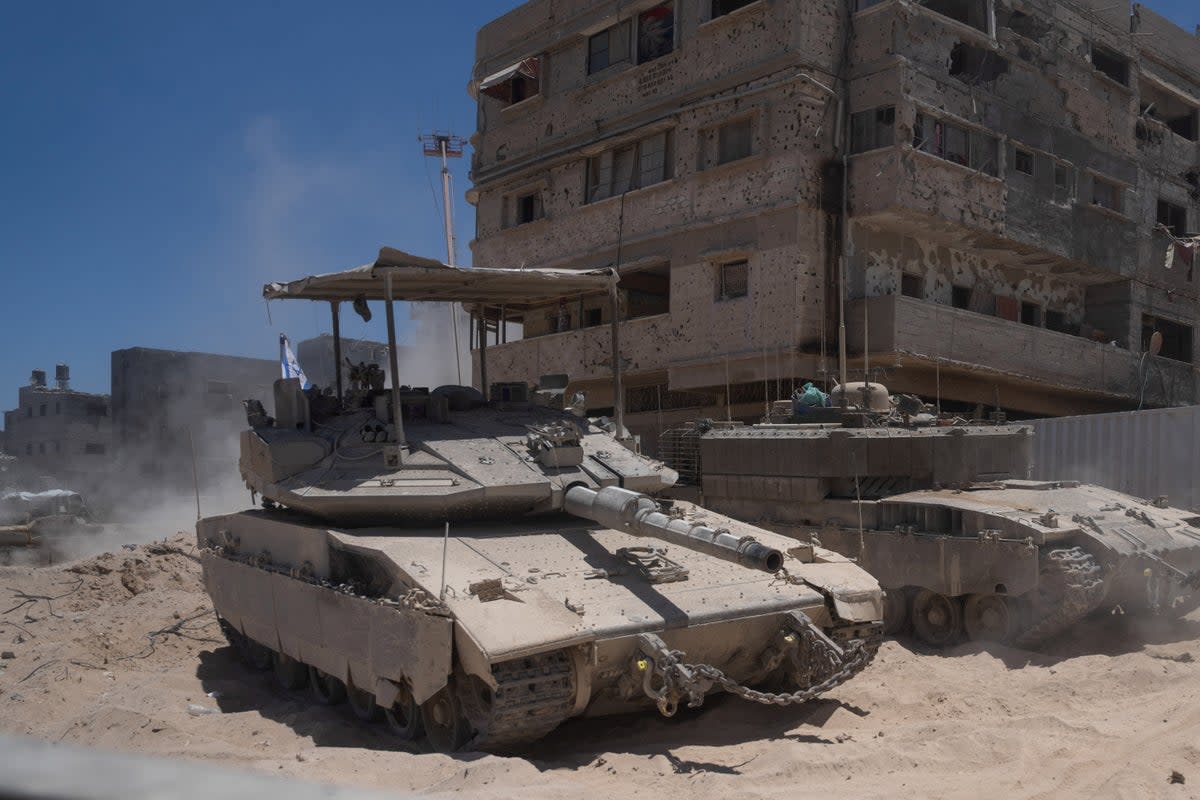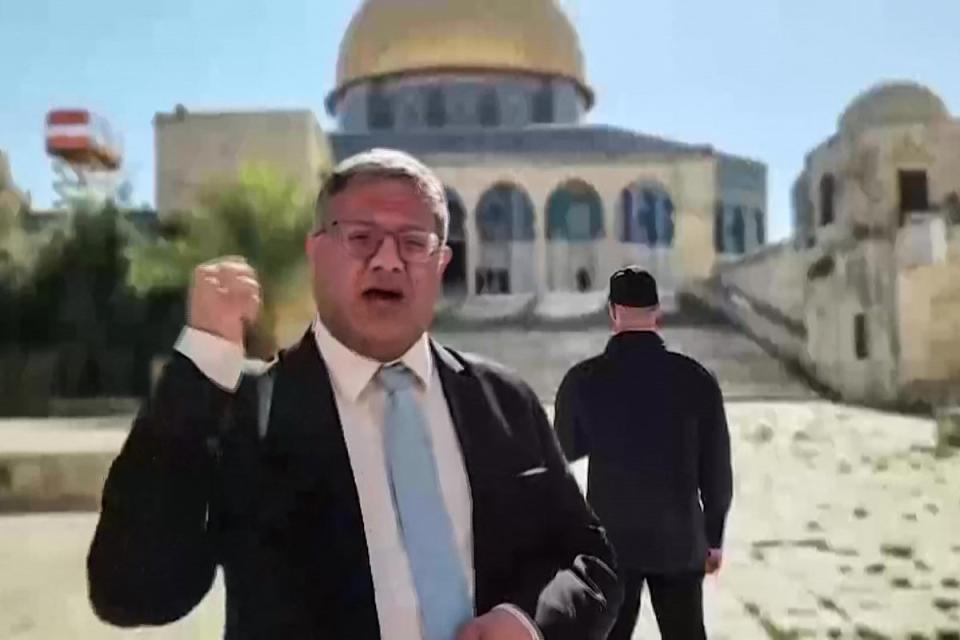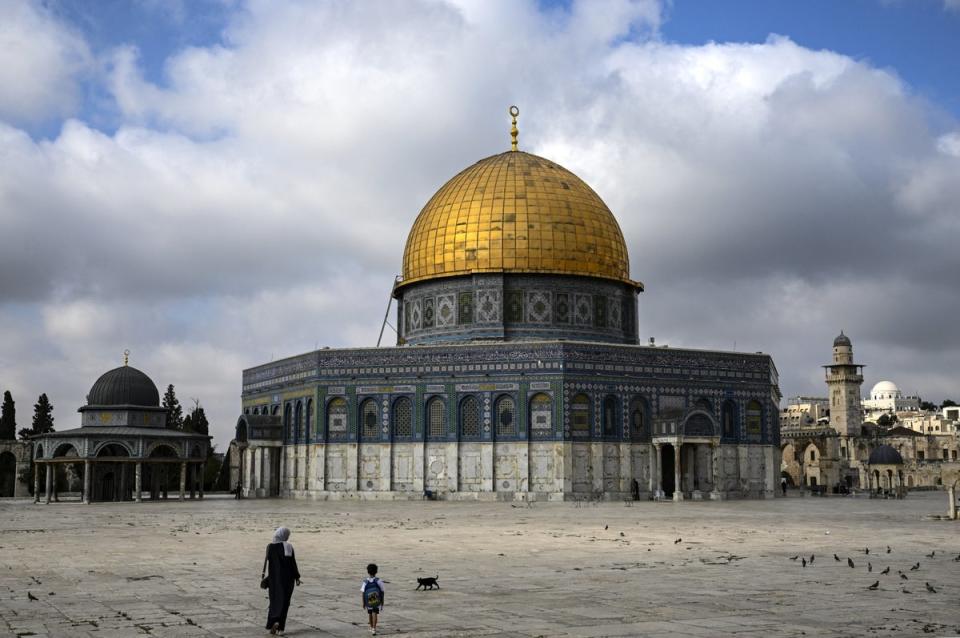Netanyahu visits Israeli forces in Gaza’s Rafah as far-right minister attends sensitive Jerusalem holy site

- Oops!Something went wrong.Please try again later.
Israel’s prime minister Benjamin Netanyahu made a surprise visit to troops in Rafah in southern Gaza, hours after the country’s far-right national security minister visited Jerusalem’s most sensitive holy site.
Mr Netanyahu's office announced his visit to Rafah once the prime minister had exited Gaza He has made at least two previous trips to see troops in Gaza, in November and December.
Israeli forces began an offensive into Rafah in early May, forcing most of the more than one million Palestinians sheltering there to flee. Rafah, once a crucial entry point for humanitarian aid has faced intense shelling for weeks.
The security minister Itamar Ben-Gvir, an ultranationalist, said he had gone to pray at Al-Aqsa Mosque for the return of Israeli hostages but “without a reckless deal” and “without surrendering” to Hamas. He said that Mr Netanyahu will not give in to international pressure and will continue with the military campaign in Gaza.
The Al-Aqsa compound is revered by Judaism as Temple Mount and as Haramal-Sharif by Muslims, and is administered by neighbouring Jordan. Ben-Gvir has visted the site at numerous times during the war in Gaza, drawing condemnation. Ben-Gvir last visited the site in May to protest countries unilaterally recognising Palestinian statehood. Tensions over the compound have fuelled past rounds of violence.
The Palestinian Foreign Ministry condemned Ben-Gvir's visit as a "provocative intrusion" that endangered the fragile status quo regarding the compound.

As security minister, Ben-Gvir oversees the country's police force. As a key coalition partner, Ben-Gvir also has the power to rob Mr Netanyahu of his parliamentary majority and try to force early elections.
Ben-Gvir has used his influence to push forward pet projects and encourage Mr Netanyahu to press ahead with the war in Gaza in the face of widespread calls to reach a ceasefire deal that would bring home hostages.
The two leaders' visits came hours after Israel's parliament overwhelmingly passed a resolution rejecting the establishment of a Palestinian state. The vote, in an overnight session that lasted into Thursday morning, was largely symbolic and meant to send a message ahead of trip to the US by Mr Netanyahu in the coming days.
The war in Gaza, which was sparked by Hamas’s 7 October attack on southern Israel, has killed more than 38,600 people, according to the territory’s Health Ministry, which does not distinguish between combatants and civilians in its count.

The war has created a humanitarian catastrophe in the coastal Palestinian territory, displaced most of its 2.3 million population and triggered widespread hunger.
Hamas’s October attack killed 1,200 people, mostly civilians, and militants took about 250 hostage. About 120 remain in captivity, with about a third of them believed to be dead, according to Israeli authorities.

